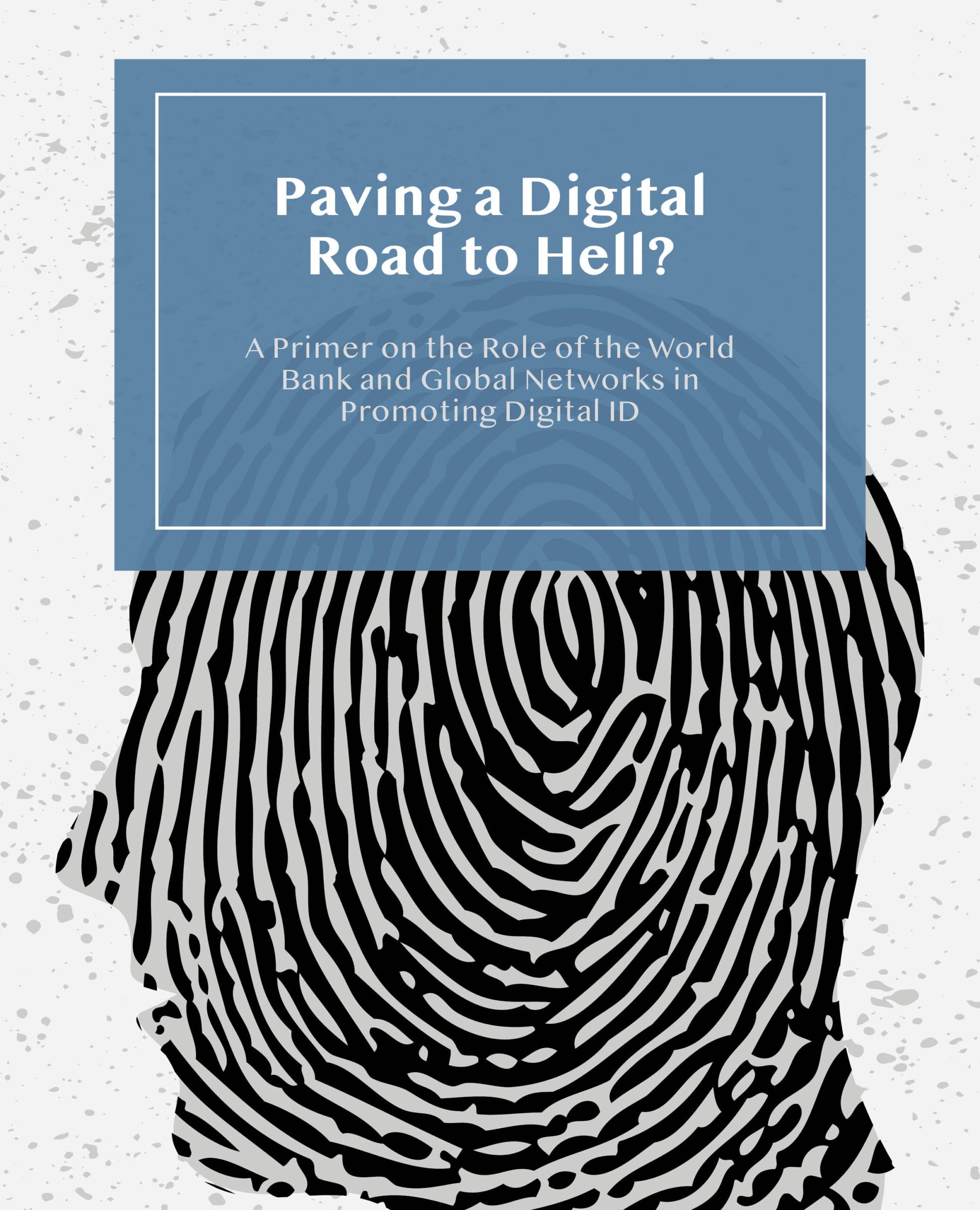TECHNOLOGY & HUMAN RIGHTS
Global actors, led by the World Bank, are energetically promoting biometric and other digital ID systems that are increasingly linked to large-scale human rights violations, especially in the Global South. A report by researchers at New York University warns that these systems, promoted in the name of development and inclusion, might be achieving neither. Rather than the equitable digital future envisioned by the World Bank and its Identification for Development (ID4D) Initiative, the report argues that “despite undoubted good intentions on the part of some, [these systems] may well be paving a digital road to hell.”
The report, at over 100 pages, is intended to be a “carefully researched primer as well as a call to action to all of those with an interest in safeguarding human rights to set their gaze more firmly on the multidimensional dangers associated with digital ID systems.” Governments around the world have been investing heavily in digital identification systems, often with biometric components (digital ID). The rapid proliferation of such systems is driven by a new development consensus, packaged and promoted by key global actors like the World Bank, but also by governments, foundations, vendors and consulting firms. This new ‘manufactured consensus’ holds that digital ID can contribute to inclusive and sustainable development—and is even a prerequisite for the realization of human rights.
Drawing inspiration from the Aadhaar system in India, the dangerous digital ID model that is being promoted prioritizes what the primer refers to as an ‘economic identity’. The goal of such systems is primarily to establish ‘uniqueness’ of individuals, commonly with the help of biometric technologies. The ultimate objective of such digital ID systems is to facilitate economic transactions and private sector service delivery while also bringing new, poorer, individuals into formal economies and ‘unlocking’ their behavioral data. As the Executive Chairman of the influential ID4Africa, a platform where African governments and major companies in the digital ID market meet, put it at the start of its 2022 Annual Meeting earlier this week, digital ID is no longer about identity alone but “enables and interacts with authentication platforms, payments systems, digital signatures, data sharing, KYC systems, consent management and sectoral delivery platforms.”
Unlike ‘traditional systems’ of civil registration, such as birth registration, this new model of economic identity commonly sidesteps difficult questions about the legal status of those it registers and the rights associated with that status. The promises of inclusion and flourishing digital economies might appear attractive on paper, but digital ID systems have consistently failed to deliver on these promises in real world situations, especially for the most marginalized. In fact, evidence is emerging from many countries, most notably the mega digital ID project Aadhaar in India, of the severe and large-scale human rights violations linked to this model. These systems may in fact exacerbate pre-existing forms of exclusion and discrimination in public and private services. The use of new technologies may furthermore lead to novel forms of harm, including biometric exclusion, discrimination, and the many harms associated with “surveillance capitalism.”
Meanwhile, the benefits of digital ID remain ill-defined and poorly documented. From what evidence does exist, it seems that those who stand to benefit most may not be those “left behind”,but instead a small group of companies and governments. After all, where digital ID systems have tended to excel is in generating lucrative contracts for biometrics companies and enhancing the surveillance and migration-control capabilities of governments.
With such powerful backing, digital ID has taken on the guise of an unstoppable juggernaut and inevitable hallmark of modernity and development in the 21st century, and the dissenting voices of civil society have been written off as Luddites and barriers to progress. Nevertheless, the report calls on human rights organizations, other civil society organizations, and advocates who may have been on the sidelines of these debates to get more involved. The actual and potential human rights violations arising from this model of digital ID can be severe and potentially irreversible. The human rights community can play an important role in ensuring that such transformational changes are not rushed and are based on serious evidence and analysis. It can also ensure that there is sufficient public debate, with full transparency and involving all relevant stakeholders, not in the least the most marginalized and most affected individuals. Where necessary to safeguard human rights, such dangerous digital ID systems should be stopped altogether.
This post was originally published as a press release on June 17, 2022.



